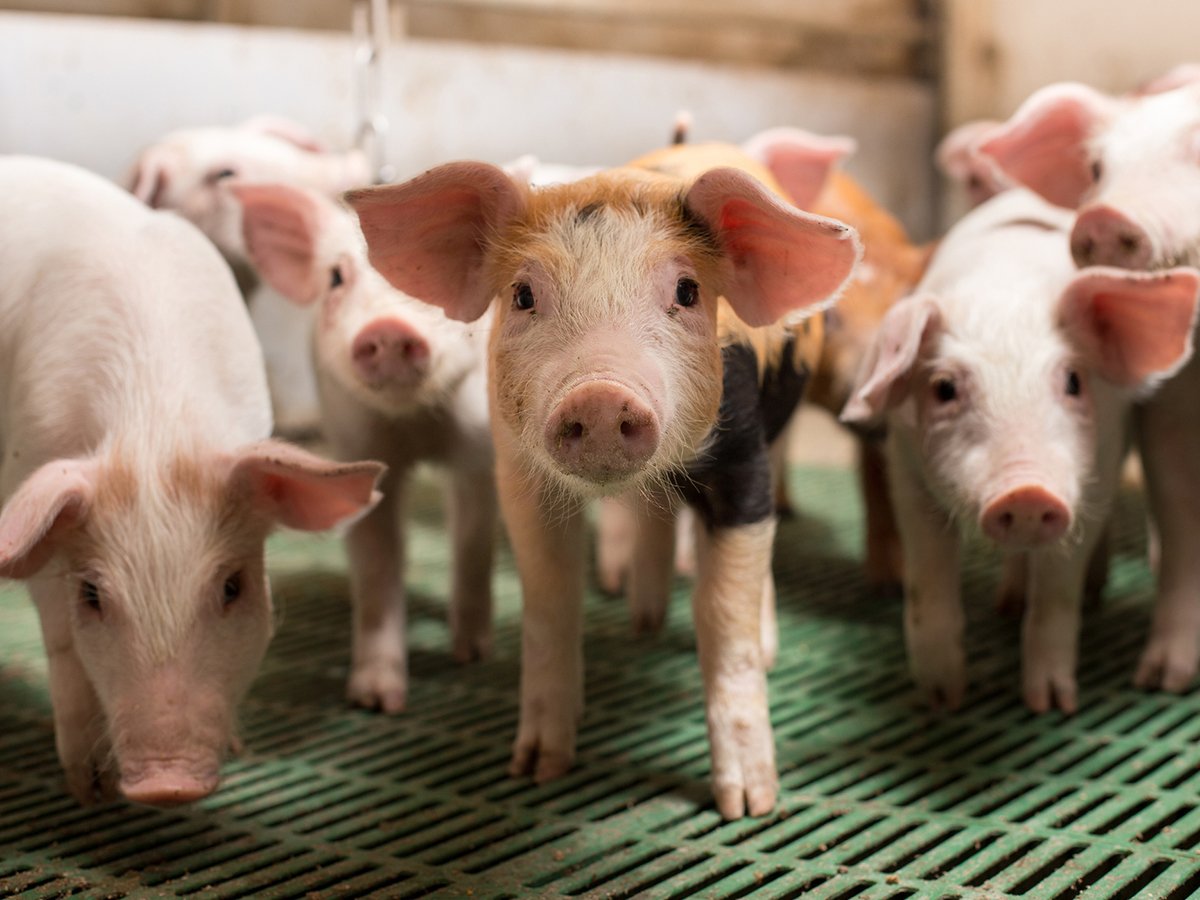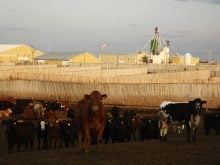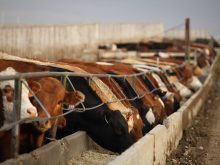LETHBRIDGE – Cecilie Fleming believes the Alberta Beef Producers must change and become more nimble if the province’s cattle industry is to survive.
“We need an extreme beef makeover,” said Fleming during a review of the organization and its structure.
“I’m desperately concerned about the state of our beef industry. Our whole beef industry is on the brink of some sort of peril,” said Fleming, one of 70 beef producers at the first of five meetings across the province to discuss the organization.
While the provincial cattle organization can’t change the high price of feed or the rising Canadian dollar, many producers believe the organization, created in 1969, is too cumbersome and bloated to respond quickly in troubled times.
Read Also

The Western Producer Livestock Report – October 9, 2025
Western Producer Livestock Report for October 9, 2025. See U.S. & Canadian hog prices, Canadian bison & lamb market data and sales insights.
Steve Primrose of Lethbridge said the industry is facing difficult times and producers need new tools.
“We have to get together somehow and figure this mess out. We’ve got to figure out how we’re going to stay competitive. We’ll see a whole cattle landscape in Alberta change and it won’t be for the better. We’ve got to get going,” he said.
During a five-hour discussion in Lethbridge on Jan. 22 and the following evening in Innisfail, Alta., producers placed all aspects of ABP under the spotlight.
They debated policy development, government lobbying efforts, promotional activities and research work. These areas are now paid for out of the organization’s $14 million budget derived from a $3 checkoff paid each time an animal is sold.
Producers also discussed the merits of scrapping the delegate process. Producers and cattle feeder council delegates are elected every fall from nine zones across the province.
The board consists of 19 or 20 directors from the various zones and associations. Alberta Milk and the Feeder Associations of Alberta appoint their own producer delegates. The cattle industry council, which includes auction markets, also elects delegates.
John Kolk of Iron Springs, Alta., said the delegate process has outlived its usefulness. Having producers elect delegates to carry their message to the board breaks the chain of accountability within the organization.
“We need direct accountability,” said Kolk, who wanted a scorecard to measure the organization’s accomplishments.
Not every one was willing to toss out the delegate system. Ernie Israelson of Didsbury thought the structure was acceptable.
Rob Somerville of Endiang said ABP is one of the few organizations with the ability to bring producers from across the province together.
Maggie Dulaney of Innisfail said she was frustrated with the delegate process. Resolutions passed at zone meetings often are defeated during the annual meeting without regard for the producers who brought the ideas forward.
“I think if we put forth a resolution and it is defeated, we should have a good reason. I think the machinery has gotten too big. They’re not the voice of the grassroots producers. It’s just not working now,” she said.
Producers also wondered if the board might be more nimble if there were fewer than 19 members sitting around the table.
After the Lethbridge meeting, Rick Burton, the beef producer’s vice-chair, said he is committed to ensuring changes proposed by producers be voted on at a June meeting.
“In my mind, we’ve got to make some significant changes to the way this organization works. We’ve got to become more accountable and react quicker,” said Burton of Claresholm.
Adrienne Waller, the beef producer’s legal counsel, said producers don’t give the organization credit for changes already made. New staff is in place and the organization has tried to be more flexible.
A consultation paper will be mailed to all 28,000 eligible cattle producers across the province, who will be asked for comments.
Recommendations from the review committee will be forwarded to the board. Delegates at the organization’s semi-annual meeting in June will vote on changes.














